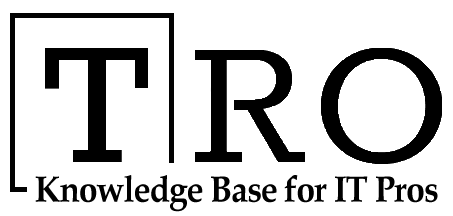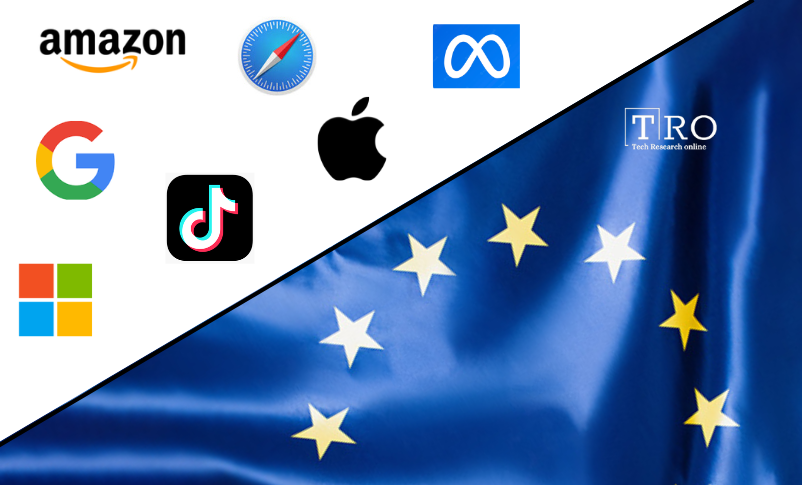European Union (EU) Imposes Digital Markets Act (DMA) on 6 Tech Giants
The European Commission (EC) on Wednesday, designated six tech giants under its Digital Markets Act (DMA). This is one of its most diligent efforts to balance the market power in big tech. The EC is applying a new set of active and competitive rules on how these gatekeepers can operate designated core platform services. The six tech giants are Alphabet, Amazon, Apple, ByteDance, Meta and Microsoft.
The European Union (EU) is known for promoting peace, stability, and prosperity for over half a century. The EU has ensured that businesses stay secure from the setbacks of globalization through their support and has created rules to make sure big companies pay their taxes fairly.
This new act will ensure that no unfair conditions are imposed on businesses or users by the gatekeepers which will open doors for competitive digital services and safer user experience.
Here is the complete list of platforms that the DMA will affect:
- Social networks – TikTok, Facebook, Instagram, and LinkedIn
- Six intermediation services – Google Maps, Google Play, Google Shopping, Amazon Marketplace, iOS App Store, and Meta Marketplace
- Three ads delivery systems (ADS) – Google, Amazon, and Meta
- Two browsers – Chrome and Safari
- Three operating systems – Android, iOS, and Windows
- Two messaging platforms – WhatsApp, and Facebook Messenger
- The Google search engine and the video-sharing platform YouTube
Platforms Missing from the Official Big Tech List
Substantial Provisions of the DMA
The rules and provisions of DMA apply to the gatekeepers; But what exactly is the definition of gatekeepers? EC defines gatekeepers as online firms with a dominance in the market and economic impact that serve as intermediaries linking a huge user base to a large number of businesses and platforms, and function in multiple EU countries.
Key provisions of the Digital Markets Act include a ban on self-preferencing or gatekeepers requiring business users to make use of their services and a ban on gatekeeping app stores preventing the installation of competing stores. They cannot ban business users from offering and promoting competing services and they must share platform usage information.
There are also data portability and service interoperability provisions, including specific interoperability obligations for messaging giants and choice-screen-style obligations for operating systems, browsers, search engines, and virtual assistants.
Moreover, there’s a ban on gatekeepers tracking and profiling users for ad targeting unless they obtain their consent. The Digital Markets Act also bans restrictions on uninstalling gatekeeper preloads. Furthermore, the gatekeepers will need to meet a requirement to apply Fair, Reasonable, and Non-discriminatory (FRAND) terms for general access (and avoid discriminatory T&Cs) for fair dealing with business users.
Compliance failure or breaching the regime can lead to fines of up to 10% of global annual turnover or even 20% for severe repeat offenses. The Commission has further power to apply additional remedies like requiring a gatekeeper to sell a business or parts of it or stopping gatekeepers from acquiring additional services related to systemic non-compliance.
Thierry Breton, the EU’s Internal Market Commissioner’s Words
In his speech at a digital conference in Estonia, Breton outlined the bloc’s object for the regulation. “We know that some tech giants have used their market power to give their products and services an unfair advantage and hold back competitors from doing business and creating added value and jobs. These practices distort competition, undermine free consumer choice, and hold back SMEs’ innovation potential notably arising from Web 4.0 and virtual worlds,” he said.
Breton further said, “It was high time that Europe sets its rules of the game upfront, providing a clear enforceable legal framework to foster innovation, competitiveness and the resilience of the Single Market, rather than having to rely on lengthy and not always effective antitrust investigations. The DMA does just that.”
An Opportunity for Fair Competition
The new set of rules can pave the road for different opportunities for competition on major platforms such as independent app stores, alternative payment services, and upstart search engines. And, simultaneously breaking the aggressive behavior of gatekeepers such as arbitrary enforcement of T&Cs.
The new law can also encourage the development of less exploitative business models, as consumers should have more space to break the loop of platform giants’ lock-ins. Breaking the pattern of their powerful network and opting for other competing businesses can still take some time as consumers trust the big enterprises.
There is still time to comply with the Digital Markets Act deadlines come into the picture. These tech giants have six months to ensure they meet all the legal requirements and submit a compliance report in which they summarize their compliance with each of the obligations of the DMA. So March 2024 will be the time when we can see the true effect of DMA and its influence on the competition and the big tech.

